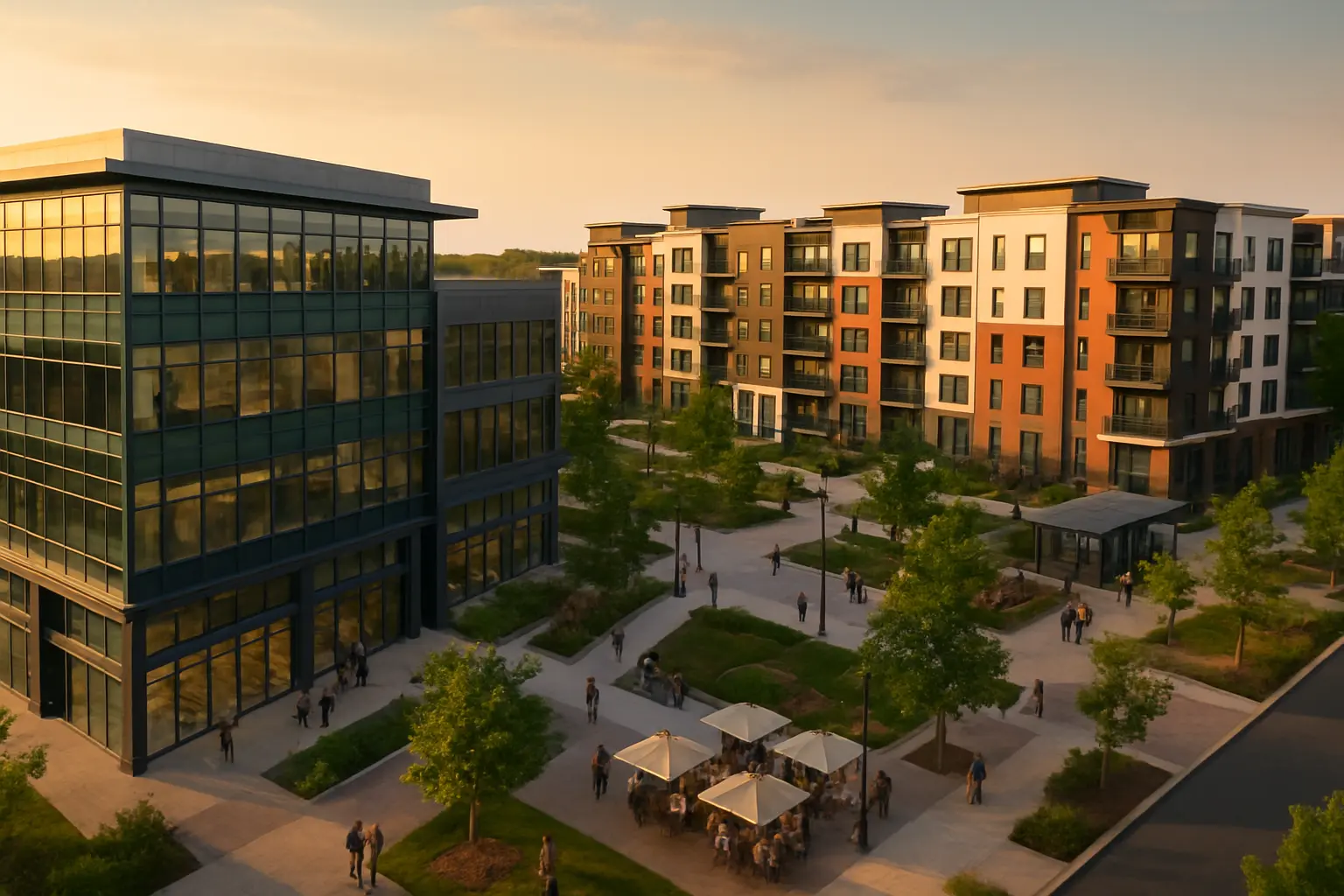Hampden County's Mixed-Use Renaissance: Where Business Meets Lifestyle
Discover how this thriving Massachusetts region is redefining the perfect balance between commercial success and residential comfort.

The Evolution of Hampden County
Hampden County has emerged as a pioneering force in Massachusetts' real estate landscape, embracing the future of urban development through innovative mixed-use projects. This transformation represents a fundamental shift from traditional zoning patterns to more integrated, community-centric spaces that cater to modern lifestyle demands.
The region's evolution has been marked by thoughtful urban planning that prioritizes both commercial vitality and residential comfort. Local municipalities have adapted their zoning laws to accommodate these hybrid developments, creating opportunities for developers and businesses while ensuring community needs are met.
Strategic Investment Opportunities
The county's mixed-use landscape presents compelling opportunities for investors and developers. Key areas have been identified where commercial and residential integration shows particular promise:
- Downtown Springfield Revival: The heart of the region showcases premium retail spaces beneath luxury apartments
- East Longmeadow Corridor: Emerging as a hub for boutique retail and contemporary living spaces
- Chicopee Innovation District: Technology-focused commercial spaces integrated with modern residential developments
Prime Location Analysis
These strategic locations have been carefully selected based on factors including:
- Proximity to transportation hubs
- Access to amenities and green spaces
- Existing infrastructure capacity
- Demographics and market demand
Market Analysis
Current market trends indicate robust growth in Hampden County's mixed-use sector. Property values in mixed-use developments have shown consistent appreciation, outperforming traditional single-use properties by significant margins.
Mixed-use properties in Hampden County have demonstrated a 15% higher occupancy rate compared to single-use developments, with retail spaces in these locations reporting 23% higher foot traffic.
Future Projections
Market analysts predict continued growth in the mixed-use sector, driven by:
- Increasing demand for walkable communities
- Rising interest in live-work-play environments
- Growing emphasis on sustainable urban development
- Shifting demographic preferences toward integrated living spaces
Success Stories
The triumph of Hampden County's mixed-use approach is best illustrated through its success stories. The Mill District, a former industrial complex, now houses thriving tech startups alongside modern loft apartments, creating a vibrant community that exemplifies the potential of mixed-use development.
Community Impact
Local businesses report increased customer engagement and retention, while residents enjoy unprecedented access to amenities and services. The integration has fostered a strong sense of community, with shared spaces becoming hubs of social interaction and cultural exchange.
Small business owner Maria Rodriguez shares, "Locating our café in a mixed-use development has transformed our business model. We've built a loyal customer base from both residential and commercial tenants, creating a sustainable community-focused enterprise."
Looking Forward
As Hampden County continues to refine its approach to mixed-use development, the region stands as a model for other communities seeking to create sustainable, vibrant urban spaces. The successful integration of commercial and residential elements has created a blueprint for future development, promising continued growth and innovation in the years to come.


